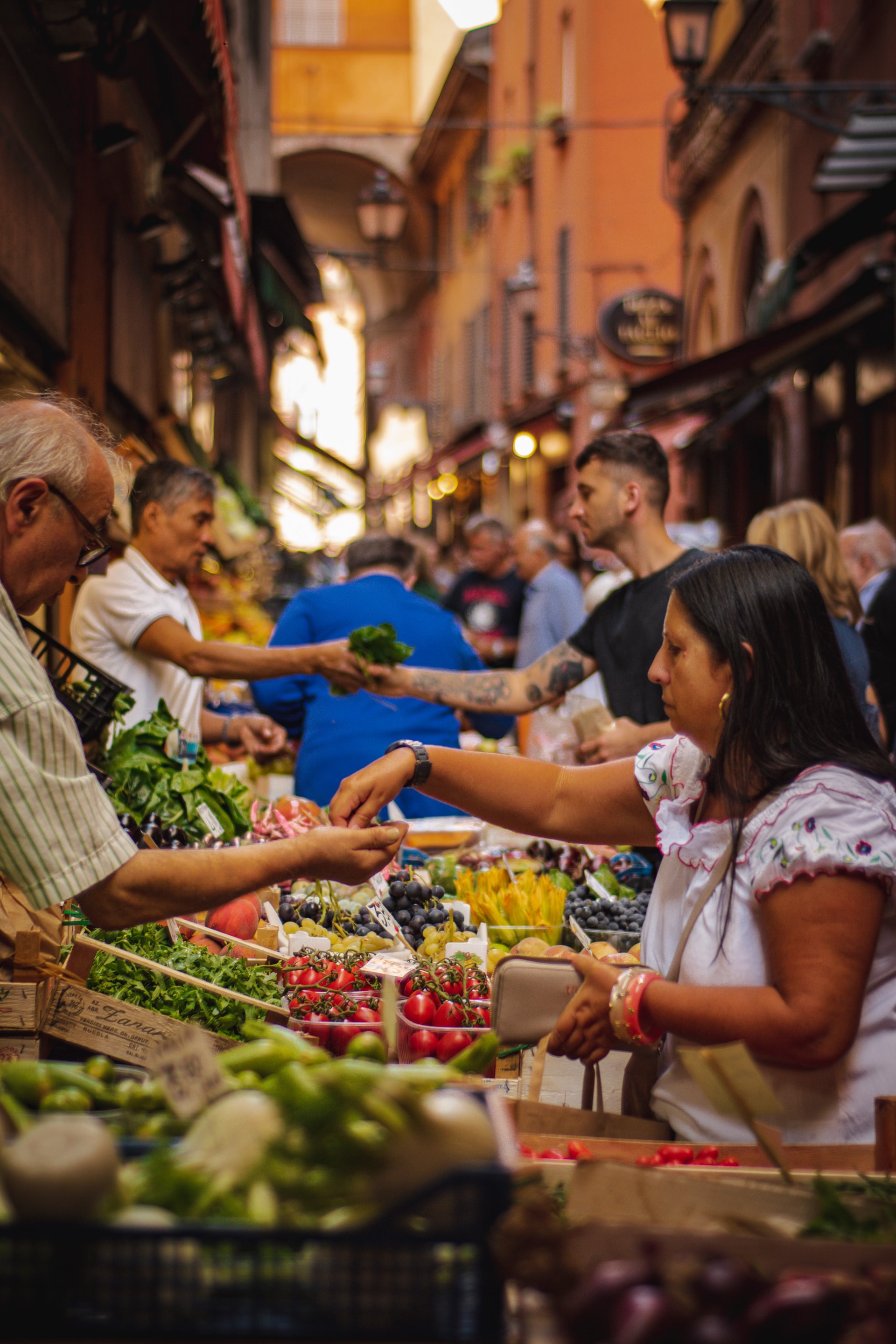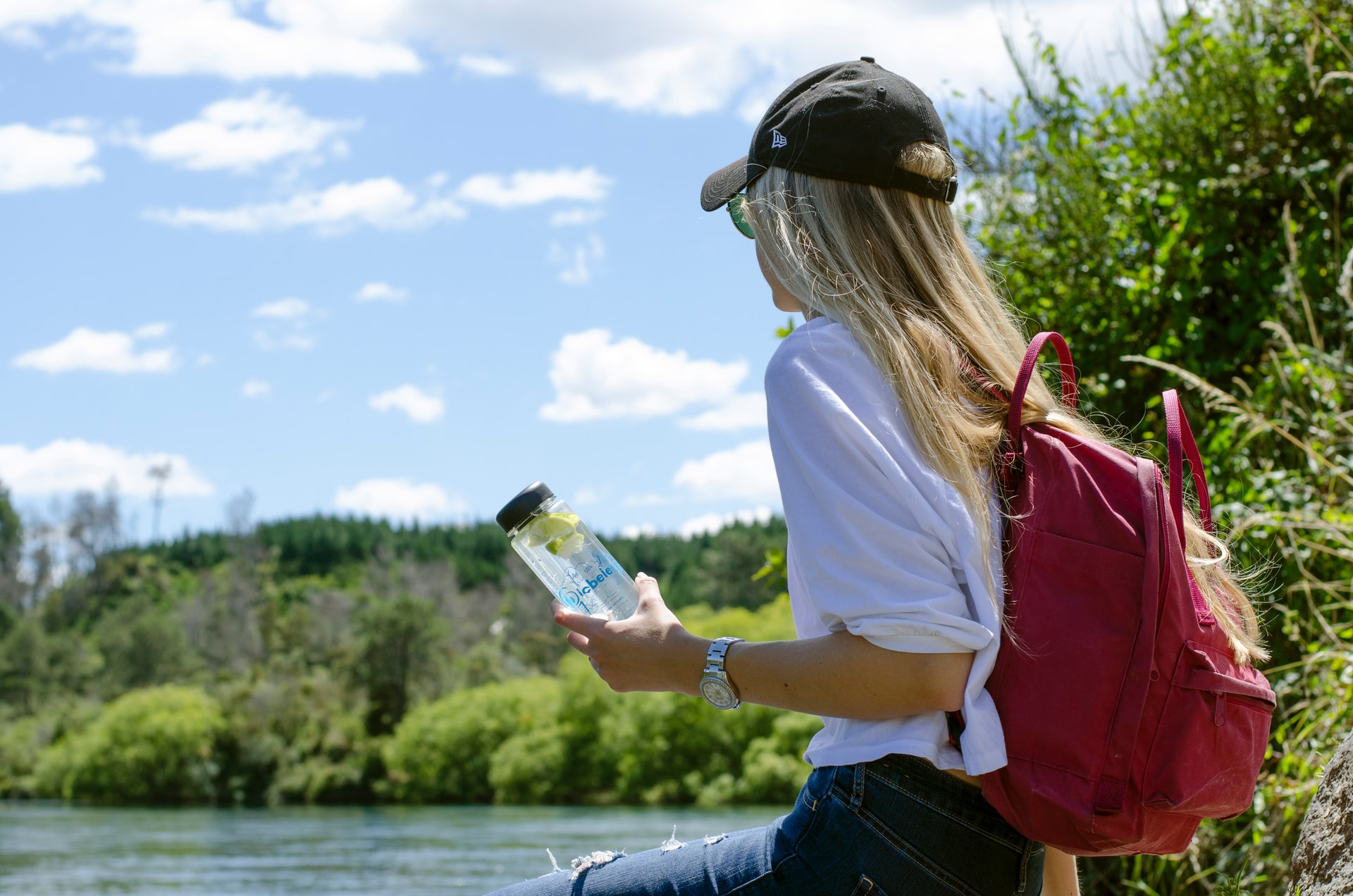How to be an eco-traveler

Lots of us like to travel, and indeed there are many economies that rely on tourism and travel, but the COVID-19 pandemic largely shut that down and while we saw reductions in air pollution levels from the dramatic decline in air travel as well as far fewer vehicles on the road, we know that travel will remain an important part of our world. So, let’s talk about the intersection between travelling and sustainability, otherwise known as eco-travel.
The problem with tourism
When we think of tourism and common tourist destinations, we might associate this with harmful environmental actions and practices. For example, carbon-heavy flights, overpopulated tourist destinations where humans leave their imprint, the unnecessary purchasing of cheaply made souvenirs, and more.
While tourism is a major industry that makes a significant economic contribution to many countries, there are many social and environmental issues associated with tourism. These problems include the potential change or loss of Indigenous identity and values, depletion of natural resources, pollution and littering, and physical development of tourist sites which cause a loss of biodiversity.
We’ve all seen the image of the stereotypical mindless and resource-consuming tourist – and let’s be honest – this isn’t the type of traveler that we want to (or should) be. The good news is that it is possible to travel while being environmentally and socially conscious.

Travelling is an amazing experience that doesn’t need to be avoided to protect the environment, as plenty of good can - and does come from travel. I still believe that seeing other ways of living and understanding new perspectives as well as witnessing the beauty that the world has to offer, is worthwhile. But how can we travel in a way that minimizes the negative impacts and increases the positive?
Eco-Travel
Eco-travel (interchangeable with the terms eco-tourism, green-travel, and sustainable tourism) is defined by the International Ecotourism Society as “Responsible travel to natural areas which conserves the environment and improves the welfare of local people.”
Furthermore, the International Ecotourism Society outlines six ecotourism principles that, when followed, indicates that one is travelling responsibly. These principles are:
- Minimize impact
- Build environmental and cultural awareness and respect
- Provide positive experiences for both visitors and hosts
- Provide direct financial benefits for conservation
- Provide financial benefits and empowerment for local people
- Raise sensitivity to host countries’ political, environmental, and social climate
What is useful here is the need to be culturally sensitive and aware as we travel. It can and should be an opportunity for connection and understanding. And if we are conscious in our choices, we can also reduce the harmful environmental impacts.
Planning your eco-vacation
These principles are something you can keep in mind when planning your next trip. There are four main categories which you should consider in order to minimize your negative impacts and maximize your positive impacts. These categories are destination, transportation, accommodation, and activities.
Destination
The first thing you should do is consider where you would like to travel and how possible it will be to maintain your commitment to a green lifestyle. For example, Scandinavian countries such as Denmark and Sweden lead in terms of landfill and recycling treatment. This means that you will be able to properly dispose of any waste you produce while vacationing in these countries and know that your waste is being treated as sustainably as possible.

You may also want to avoid locations which are overrun with tourists. Instead of contributing to the degradation of a popular tourist site, there are so many beautiful locations you can visit which are less popular.
Instead of looking for tourist attractions, look for locations that embrace sustainable activities. For example, Uzbekistan highly encourages outdoor activities such as skiing, hiking, and white-water rafting, and provides alternative and low-energy lodging such as yurts.
Seek out locations that include walkable neighbourhoods, farmer’s markets, environmentally friendly activities, efficient transportation systems, and similar features which promote green living while you are there.
Transportation
Getting to your destination in a green manner can be difficult, as many locations require you to take a plane. However, there are ways to offset or minimize your carbon emissions when travelling by plane. For one, some airlines allow you to offset your emissions when you book your flight. All you have to do is pay an extra fee when you go through the checkout process. Or, you can purchase your own carbon offsets from a verified organization.
You may also want to consider travelling less often but for a longer period of time in order to make your flight worth the emissions. Consider staying longer if possible so that you are able to make the most of your money and emissions.

And of course, if possible, it is always better to travel by rail. It is one of the most carbon efficient forms of travel. Take trains, busses, or rideshare with others if those options are available to you.
Once you have gotten to your destination, try and take public transportation or walk or cycle whenever possible. This way you reduce your environmental footprint while being able to see more of the city!
Accommodation

It is important to think about where you are going to sleep when it comes to planning a vacation while minimizing your impact. Yes, large hotel chains can be convenient and familiar, but they aren’t exactly the most environmentally friendly option. Things like buffets, frequent towel-washing/replacing, and mini toiletries are incredibly wasteful!
Instead, look out for alternative accommodations which will not only reduce your waste/consumption, but also give you a cool experience. Other options include camping/tenting, couchsurfing (where you stay with someone who lives in the city you are visiting), staying in hotels which promote sustainability or are recognized as eco-hotels, or staying at hostels which are more affordable and less wasteful when it comes to amenities.
Of course, don’t forget to support local! If you choose to stay in a hotel, look for ones that are locally owned so that you can positively contribute more to the livelihoods of local people.
Activities
You can make some really positive economic, social, and environmental contributions to the country/city you are vacationing in depending on the activities you choose.
 It is always a good idea to add some activities into your itinerary that support the local people and local businesses. These don’t have to be anything extreme; it can be as simple as visiting local restaurants, farmer’s markets, or taking tours guided by locals.
It is always a good idea to add some activities into your itinerary that support the local people and local businesses. These don’t have to be anything extreme; it can be as simple as visiting local restaurants, farmer’s markets, or taking tours guided by locals.
You also want to make sure you aren’t leaving any pollution behind as you go about your day. Bring reusable items such as water bottles, cutlery, and bags so that you don’t need to use single use plastics during the day.

When it comes to conservation of natural lands, it can be great to sign up for educational tours, safaris, or other engaging activities where a portion of the proceeds goes to local charities and conservation efforts. This way you get an amazing experience while giving back to the land. Just try to do your homework in advance to make sure that the impact is real and positive, not just more greenwashing.
Finally, consider using an organization that is embedded with local conservation efforts and NGOs to help you ensure that your travel spending is really making a positive difference. Sustainable Travel International is an organization that works with some of the most vulnerable destination communities to help to protect nature, build community economic resilience while celebrating local culture and working to reduce the impacts of climate change and pollution.

Whatever you do, consider the impacts before you go and make some plans to ensure that your travel leaves a greater positive impact than negative. It is possible with the right mindset and by connecting with people in an authentic and meaningful way. So, happy travels, and please share your eco-travel tips with me!
Stay connected with news and updates!
Join my mailing list to receive the latest news and updates. Your information will not be shared.

